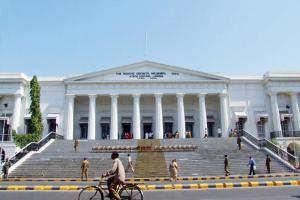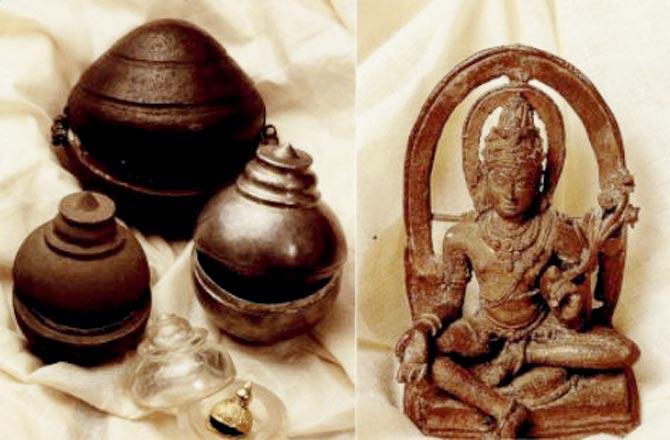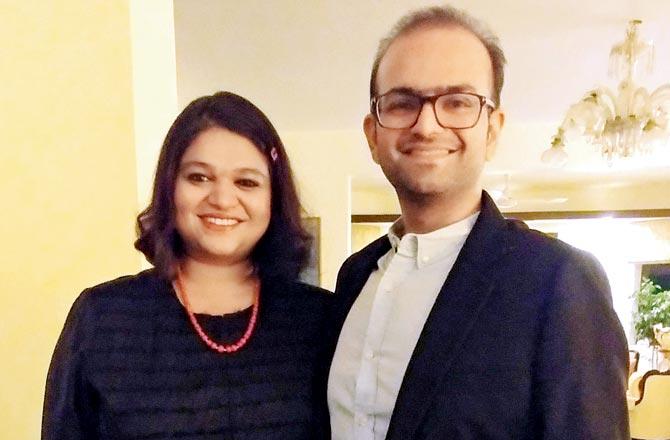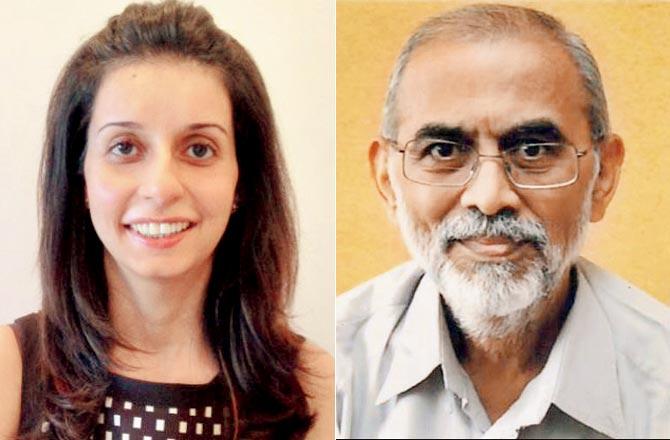The city's oldest public library, the Asiatic Society of Mumbai has revamped their social media feed. We meet the people who initiated the turnaround

When we talk of visiting the Asiatic Society, we think only of the steps or stop there. Nobody thinks of it as a library." Over a phone conversation, Nirbhay Kanoria states the crux of the problem that called for the collaboration of three entities to solve.
ADVERTISEMENT
The solution, we can say, is a stranger to most public libraries or even institutions in this city. Social media. So, when pictures accompanied by elaborate text started popping up on their Facebook page regularly — showcasing archival documents such as pages from the Ain-I-Akbari, Agni Purana, or even information on the conservation activity at the Asiatic — we were taken by surprise.

A post on the society's Facebook page that details the tissuing process as part of conservation efforts
Kanoria, along with Devanshi Jain, helms The Curious Reader (TCR), an online literary magazine. In 2016, they were approached by the Urban Heritage Renewal Committee (UHRC) of the Rotary Club of Bombay, who were interested in funding a conservation project pertaining to the library.
This involved the renovation of the central and grand durbar hall, the conservation lab, as well as restoring maps from the 1800s. "We wanted to work on preserving the city's history. The Asiatic Society was right in our backyard and its deterioration was evident. There is so much in there that the public doesn't know about, so we pushed for social media. And Mr Sharad Kale, the president of the society was instrumental in making this possible," says Natasha Treasurywala, chairperson of the UHRC committee.

The Sopara relics were excavated from a Buddhist stupa at Nalasopara by archaeologist Pt Bhagvanlal Indraji in 1882
In August this year, Kale even issued a notice to society members intimating them about TCR's involvement and urging them to share posts regularly to get more traffic. Their social media strategy was simple — maintaining a focus on the rare book collection, especially those titles that were digitised and are now available for reading on the society's e-portal, Granth Sanjeevani (that has over 20,000 titles), as well as alerting the public of events to be held there. For instance, next Saturday the library will play host to Karl Marx in Kalbadevi, a Hinglish play.
"When we came on board, there were so many things that we didn't know ourselves. We were so fascinated to see the Sopara relics [excavated at the Buddhist Stupa in Nalasopara] and the coins dating back to Emperor Akbar's reign. The society needs to be seen as an institution and the public needs to contribute to this cause of conservation," Jain tells us.

Devanshi Jain and Nirbhay Kanoria
And there are ways to do that. The Adopt a book scheme was started during Dr Sardesai's tenure, a president of Asiatic back in 1993. One can make a donation of '7,500 that is directed towards preserving a book of historical value. And the donor will receive a mention in its pages. The Bombay Port Trust, Rotary Club of Bombay, and even fashion house Hermès have followed suit.
"In addition, with a donation of '10,000, 10 books can be digitised. You have to understand that conservation is not an easy process — it requires a huge investment of time, money, and labour. People can even choose specific books they would like to have digitised," Kale explains, while adding that a lot of new interest has been generated as a result of their Facebook activity. "We feel that this is the only way we can reach the younger generation. In the end, the society will be in their hands. This is our way of telling them that here's an intellectual resource they can tap into."

Natasha Treasurywala and Sharad Kale
Catch up on all the latest Mumbai news, crime news, current affairs, and also a complete guide on Mumbai from food to things to do and events across the city here. Also download the new mid-day Android and iOS apps to get latest updates
 Subscribe today by clicking the link and stay updated with the latest news!" Click here!
Subscribe today by clicking the link and stay updated with the latest news!" Click here!







